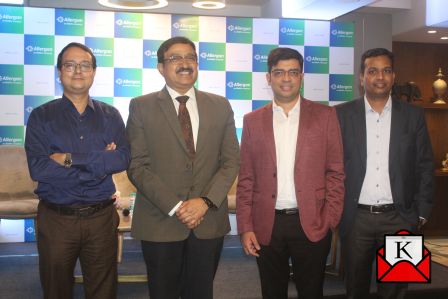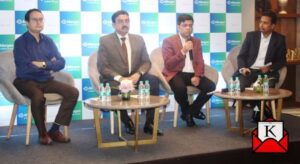Early Detection Of Glaucoma Can Prevent Individuals From Going Blind


In recognition of World Glaucoma Week, Allergan, an AbbVie company, collaborated with eminent ophthalmologists to highlight the significance of glaucoma early detection and treatment to avoid vision loss. The professionals also clarified the most recent advancements in treatment and the crucial risk management strategies and prevention tactics.
Every year in March, International Glaucoma Week is observed to promote understanding of the value of glaucoma early identification and treatment.
Glaucoma, after cataracts, is the second-leading cause of blindness worldwide. According to figures from 2012, glaucoma is considered to be the cause of blindness in 4.5 million people worldwide, yet only 1.2 million of the 12 million Indians who have the condition are blind as a result of it.
If neglected, glaucoma, an eye disorder, can cause vision loss. The optic nerve, which carries visual information from the eye to the brain, is harmed by the condition. If left untreated, glaucoma can cause a gradual loss of peripheral vision and finally result in blindness. Glaucoma normally advances slowly over time.
Dr. Maneesh Singh, Director, Netralayam, The Super-speciality Eye care center, Dr. Debasis Chakrabarti, Consultant Ophthalmologist, Glaucoma and Cataract Services, at Centre For Sight, Kolkata, Dr. Partha Biswas, Medical Director, Trenetralaya, Kolkata and Chairperson, Scientific Committee, All India Ophthalmology Society and others graced the event.
In India, there are differences in glaucoma prevalence between rural and urban areas. This can be ascribed to a number of things, including changes in lifestyle, an increase in life expectancy, and many more. Due to a number of causes, including an aging population, changing lifestyles, and an increase in chronic diseases like diabetes, which is a risk factor for glaucoma, the burden of glaucoma in India is predicted to rise in the coming years. So, it is crucial to raise awareness about glaucoma, enhance access to eye care services, and create efficient screening programs, especially in rural regions.
Many glaucoma misconceptions and misleading beliefs may prevent patients from receiving the necessary care and treatment. One of the most widespread myths concerning glaucoma is that it primarily affects older individuals. Despite the fact that glaucoma is more common in the elderly, it can affect anyone at any age, including infants and young adults. Those with a family history of the condition are also at a higher risk, regardless of age. Another common misconception is that those with high ocular pressure are more likely to develop glaucoma. High eye pressure raises the likelihood of developing glaucoma, but it’s not the only risk factor.
The importance of yearly eye exams must be emphasized in order to detect glaucoma early and avoid vision loss. As vision loss cannot be reversed once it occurs, early detection is essential to preventing it. Make an appointment with an ophthalmologist at least once a year to have your eyes examined. An optometrist or ophthalmologist can typically identify the early signs of glaucoma during an eye exam. Simple tests like tonometry, ophthalmoscopy, and perimetry can identify vision loss, increased eye pressure, and injury to the optic nerve. Your physician might also carry out further procedures like gonioscopy and pachymetry, which gauge the angle between the cornea and iris.
Those over 40 should have a thorough eye exam once a year, and those who are more at risk (such as those with a family history of the condition) should have checkups more frequently. The most effective method for treating glaucoma is early identification through routine eye exams. The protection of the eyes from harm is an essential component of glaucoma prevention. The management of underlying medical conditions including diabetes and excessive blood sugar should also be effective in glaucoma patients.
More blindness can be avoided with appropriate and prompt treatment. It is advised to have frequent preventative eye exams with an ophthalmologist, who can perform additional tests as necessary and recommend glaucoma surgery, medication, or laser therapy as necessary.
Priyanka Dutta
